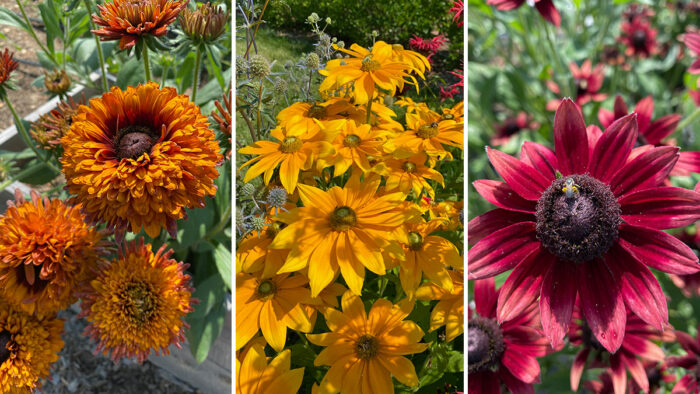
Gardeners across the world love the North American–native black-eyed Susan (Rudbeckia hirta, Zones 3–8), also called gloriosa daisy. This straight species is particularly useful in cottage gardens, meadow landscapes, or pollinator gardens. Its native distribution is vast, stretching from North Florida into Canada. It’s often found in open landscapes with full sun. A high-summer bloomer in the southeastern United States, black-eyed Susan is tough and drought resistant. It can even find a way to survive in the cracks of a sidewalk. However, in our region, black-eyed Susans are unpredictably short-lived and for most of us should be treated like an annual. But even with their short-lived nature, they are still a joy to have in the garden.
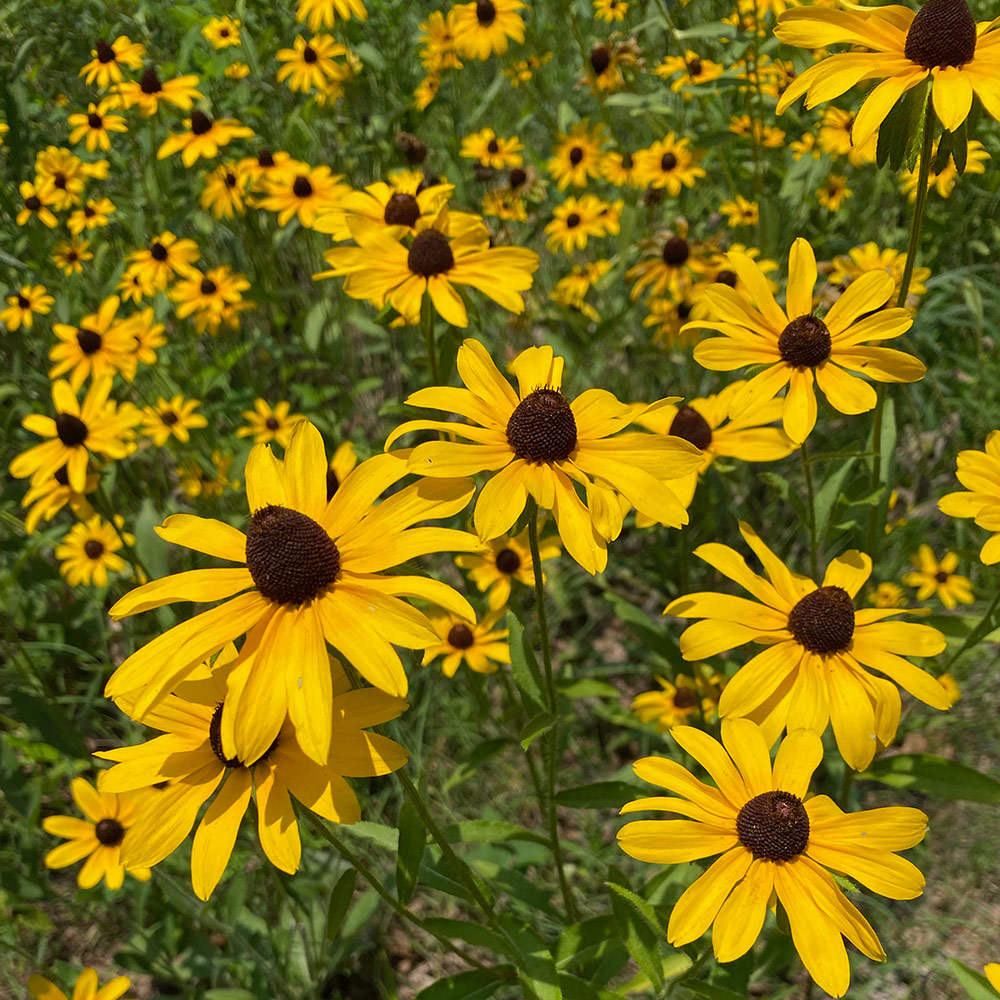
Black-eyed Susan reseeds to create new hybrids
Plant breeders have been busy with this plant over the last 20 years, and many cultivars are exceedingly valuable to gardeners. For home gardeners, one of the best attributes of this plant is its ability to reseed in the garden. It’s not the kind of reseeder that takes over; it seems to produce just the right number of seedlings. Planting several cultivars results in a vast array of differently colored hybrids. Various intermediate seedlings will display a variety of colors and patterns different from their parents. And many cultivars and hybrids have the ability to flower from seed their first year.
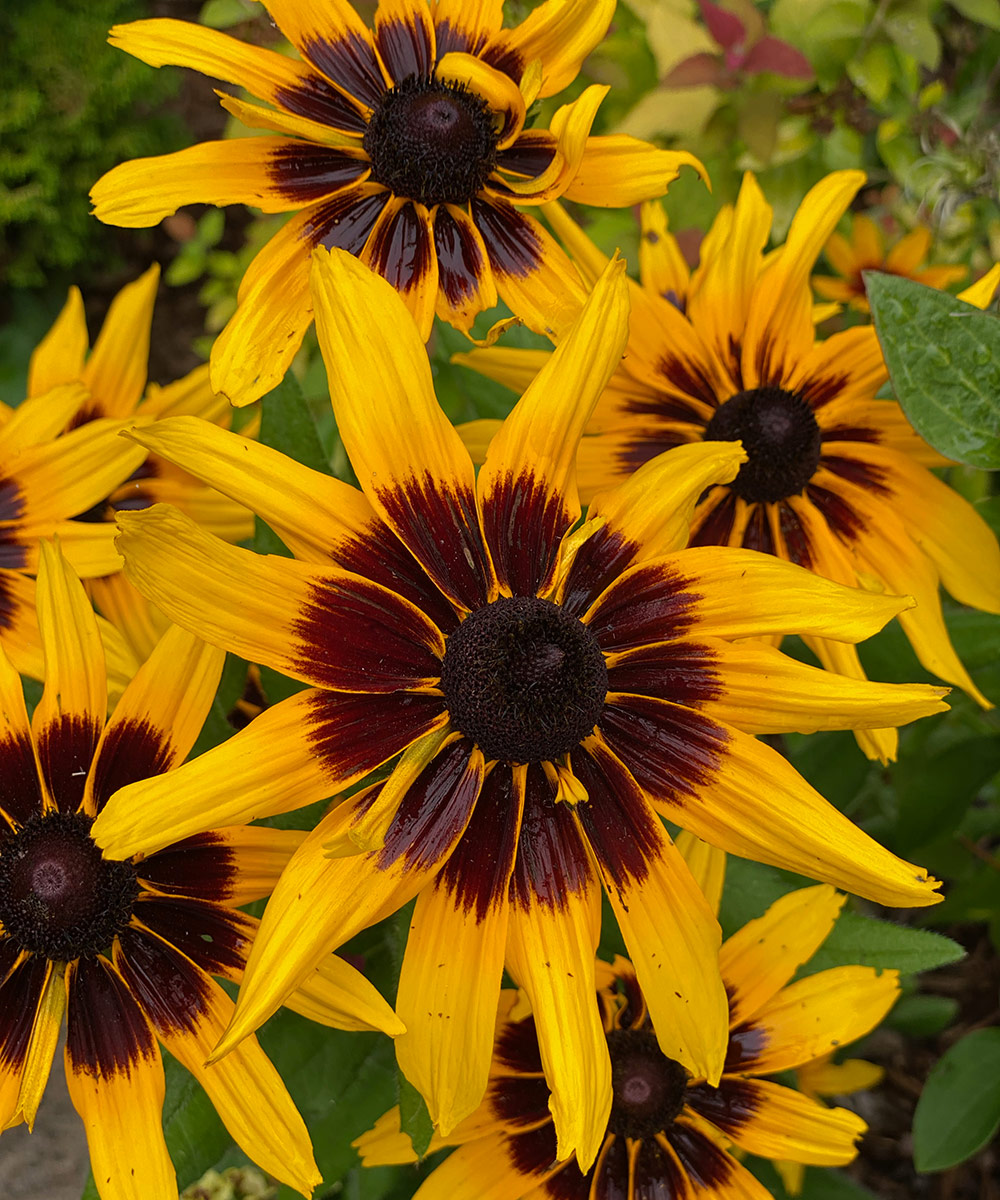
Favorite black-eyed Susan cultivars
Below are several commonly available cultivars. I always advocate for planting several different selections together. With just an ounce of luck, you’ll be enjoying these plants for years to come.
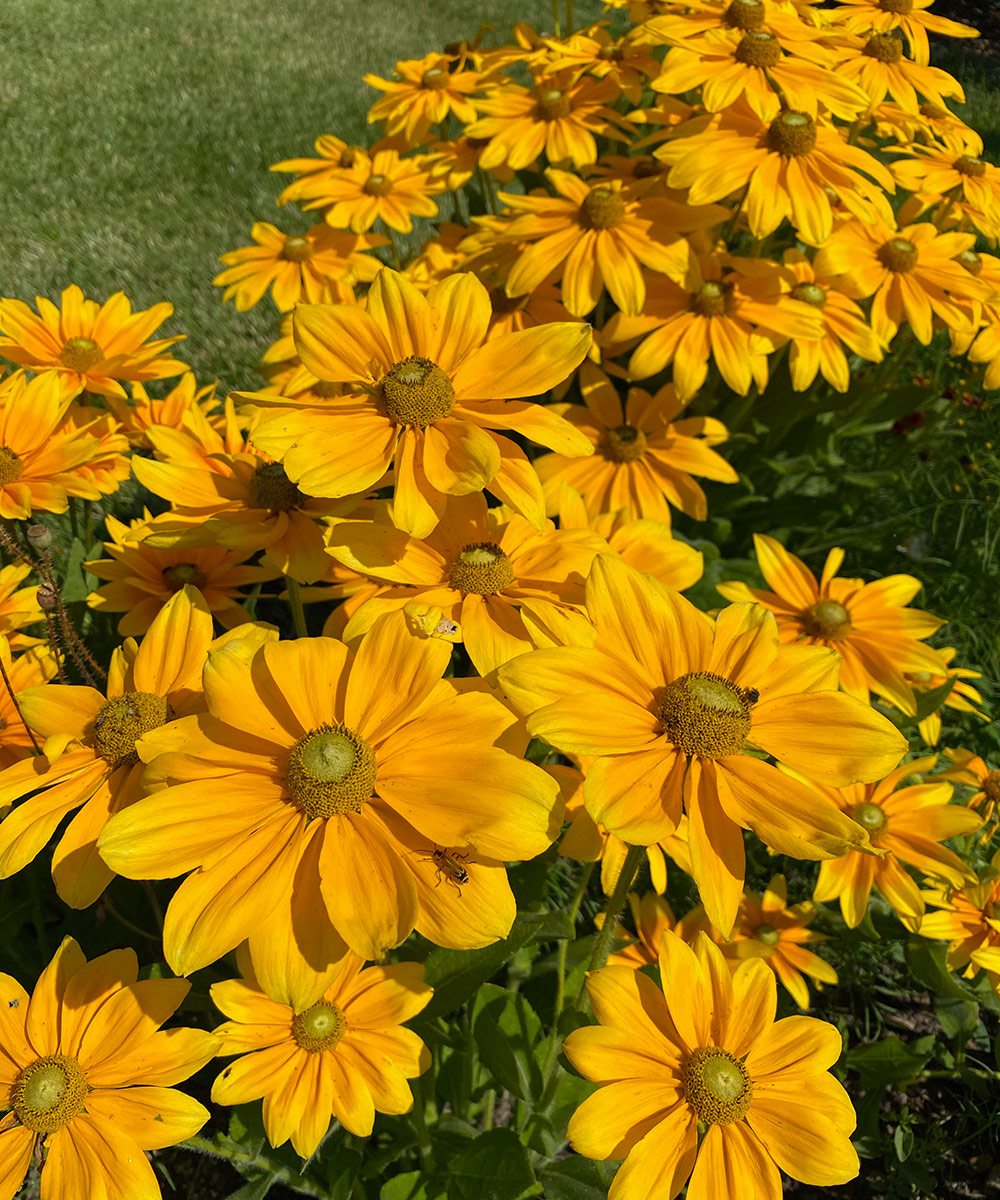
‘Prairie Sun’ black-eyed Susan
Rudbeckia hirta ‘Prairie Sun’, Zones 3–8
‘Prairie Sun’, which was a 2003 All-America Selections winner and Fleuroselect Gold Medal winner, was bred by international seed company Benary. This plant has green central eyes and is exceedingly showy.

‘Cherokee Sunset’ black-eyed Susan
Rudbeckia hirta ‘Cherokee Sunset’, Zones 3–8
An early hybrid cultivar of this plant that was developed after 10 years of research by Thompson & Morgan, ‘Cherokee Sunset’ has a mahogany-and-bronze coloration. Individual flowers mature to semi- or fully double inflorescences. This cultivar received awards from All-America Selections.
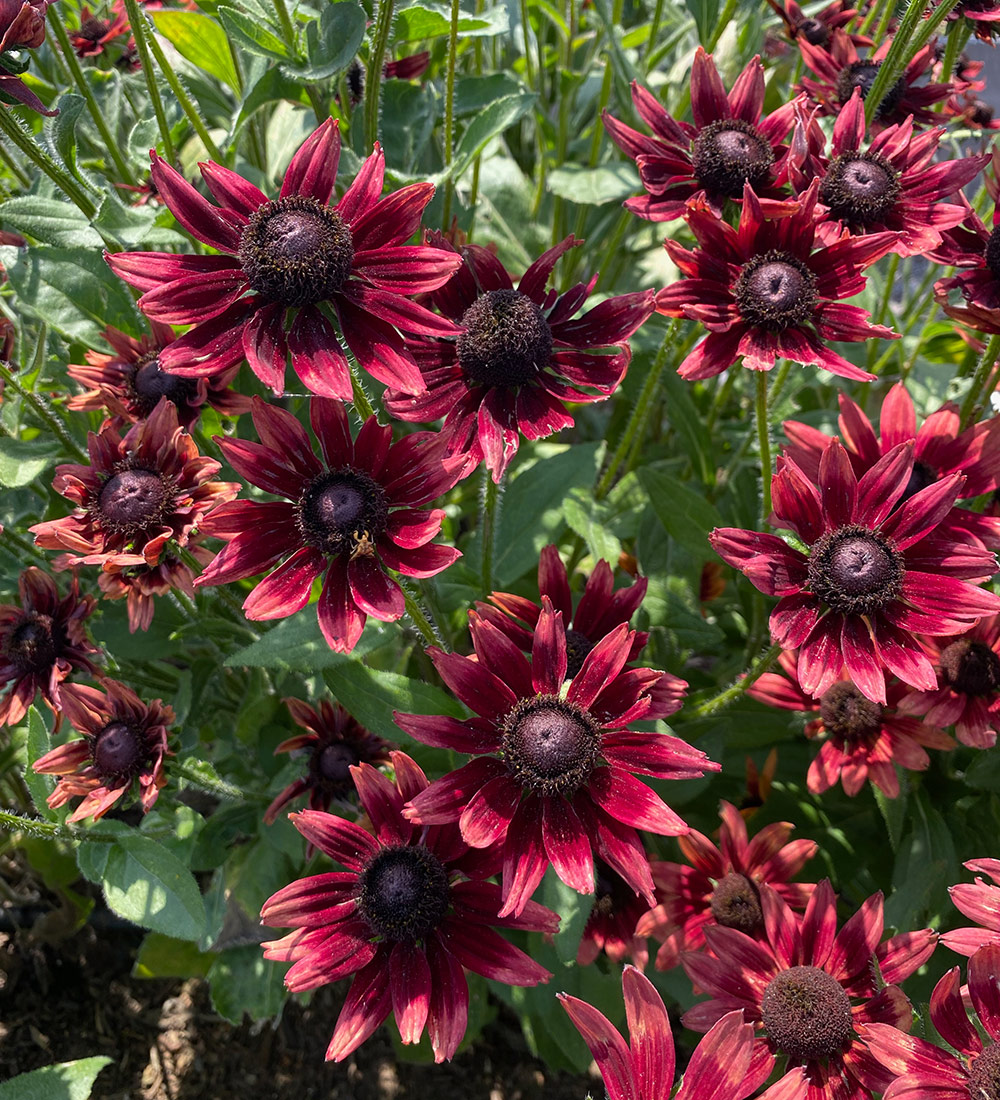
‘Cherry Brandy’ black-eyed Susan
Rudbeckia hirta ‘Cherry Brandy’, Zones 3–8
‘Cherry Brandy’ brings novel color to this group of plants. Red petals combined with darker mahogany centers make it a departure from more traditional color combinations. This plant has sturdy stems and makes a wonderful cut flower. While it’s perhaps not as vigorous as other cultivars, its unique color makes it stand out.

‘Goldilocks’ black-eyed Susan
Rudbeckia hirta ‘Goldilocks’, Zones 3–8
‘Goldilocks’ is a very interesting double-flowering variety. The original selection of this plant was bred in 1972 by Ralph Gould, a longtime plant breeder. Individual plants produce masses of double and semi-double flowers in rich shades of golden yellow.
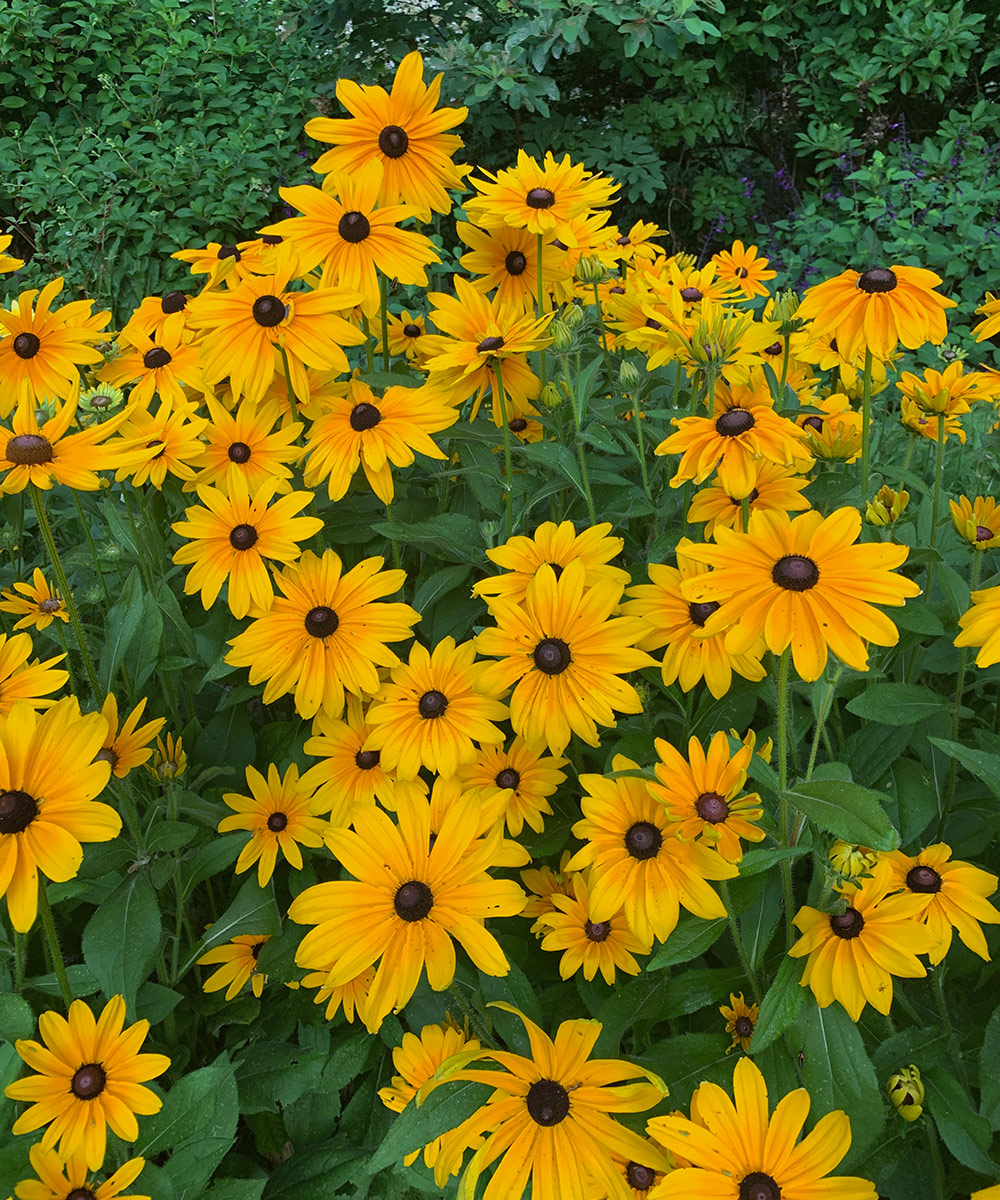
‘Indian Summer’ black-eyed Susan
Rudbeckia hirta ‘Indian Summer’, Zones 3–8
‘Indian Summer’ has extralarge flowers and is one of the most reliable of cultivars for the Southeast. Strong stems make it a great cut flower. An inner ring of gold encircles each flower’s “black eye.”

‘Rustic Colors’ black-eyed Susan
Rudbeckia hirta ‘Rustic Colors’, Zones 3–8
‘Rustic Colors’ is a seed strain that produces a variety of different plants displaying a mix of yellows, oranges, and browns. Plants continue to reseed with the same variety of colors year after year.
Plant black-eyed Susans next to colorful annuals to provide interest after flowers fade
In the Southeast, underplanting black-eyed Susan with other plants is important. Plants are not particularly good looking after flowers fade. A low-growing, ground-cover-type petunia or an adjacent sweet potato vine (Ipomoea batatas cvs., Zones 9–11) with burgundy foliage would be nice to cover space late in the season. Keep seed heads up in the garden, or collect seeds and scatter them about in fall. This will keep plants returning year after year. Overall, black-eyed Susan is one of the easiest plants you can grow in your full-sun garden.
For more high summer-blooming plants, check out:
And for more Southeast regional reports, click here.
—Andy Pulte is a faculty member in the plant sciences department at the University of Tennessee.
Fine Gardening Recommended Products

Wagner's 52003 Classic Blend Wild Bird Food, 6-Pound Bag
Fine Gardening receives a commission for items purchased through links on this site, including Amazon Associates and other affiliate advertising programs.
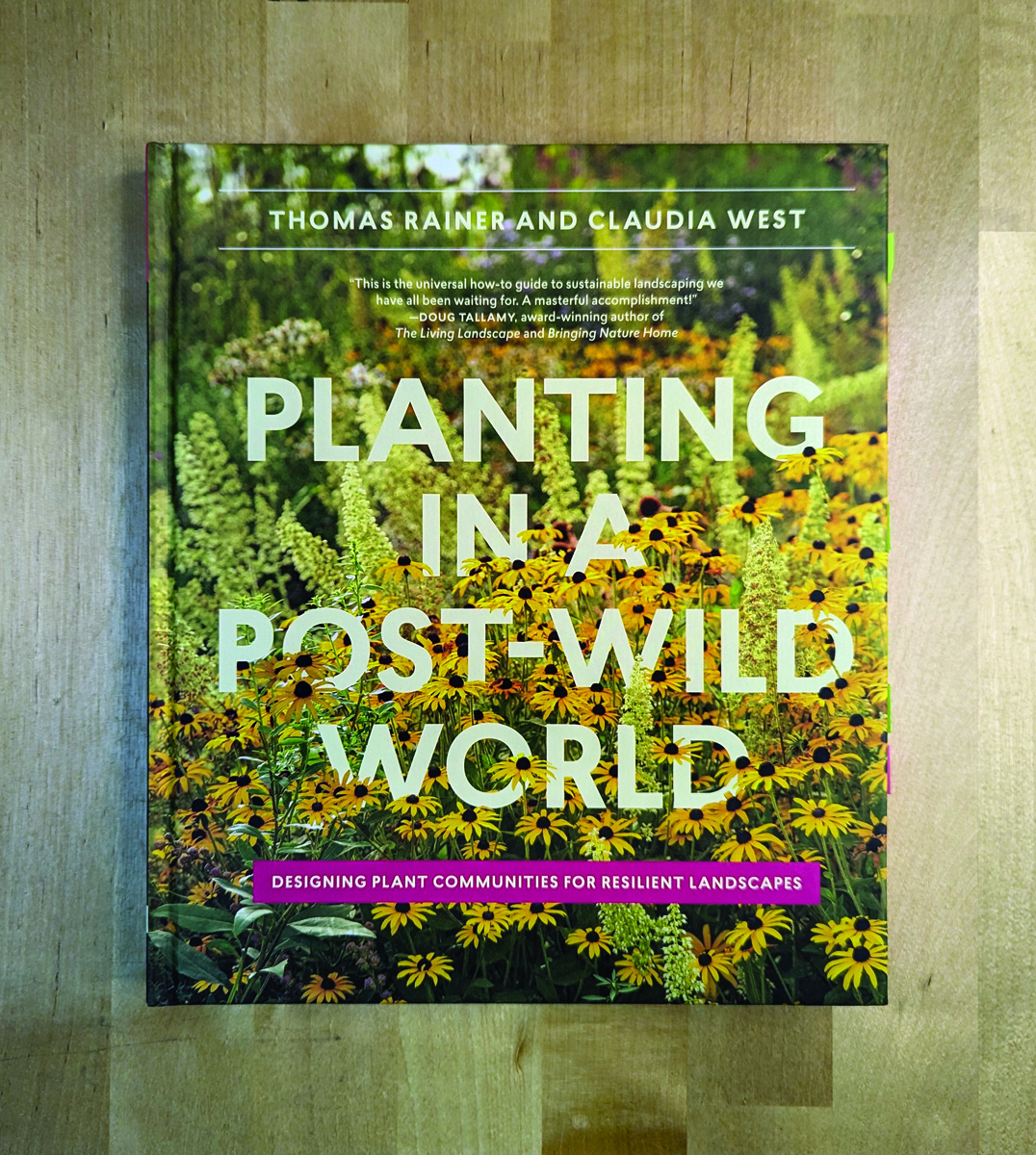
Planting in a Post-Wild World: Designing Plant Communities for Resilient Landscapes
Fine Gardening receives a commission for items purchased through links on this site, including Amazon Associates and other affiliate advertising programs.
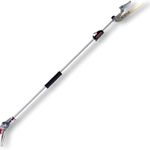
ARS Telescoping Long Reach Pruner
Fine Gardening receives a commission for items purchased through links on this site, including Amazon Associates and other affiliate advertising programs.






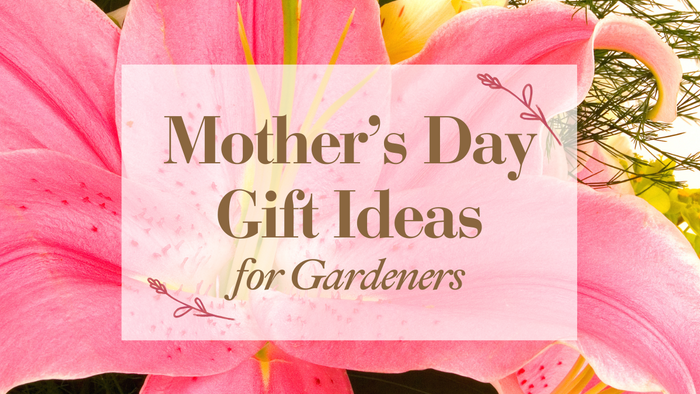
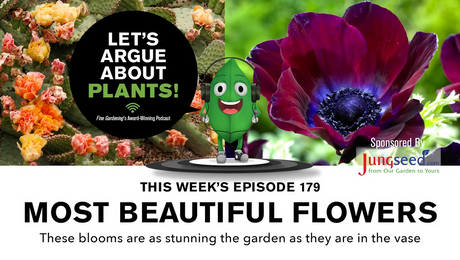











Comments
Log in or create an account to post a comment.
Sign up Log in